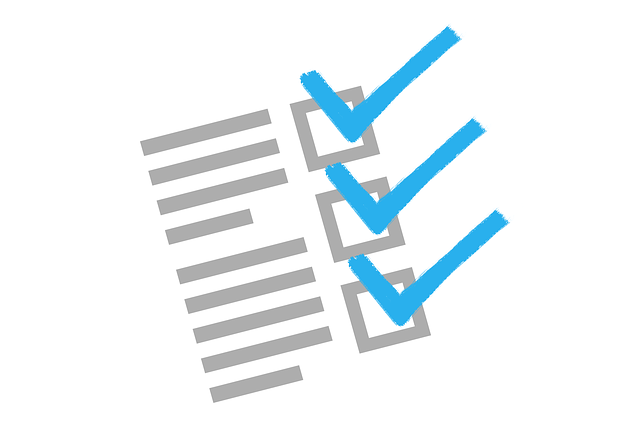A Request for Proposal RFP, is an integral part of a Multinational Company’s (MNC) process of choosing their Travel Management Company (TMC). Most MNCs will handle their choice through such a process. It may, however, be noted, from a Travel agent’s point of view, if you are not part of a major international TMC Network, you may never get to see the RFP of such an organisation. They are usually only sent out to the top three in the Business.
It would not be right on my part to label the Request for Proposal process as one that is only applicable to MNCs. If your Corporate Travel and Entertainment (T&E) budget is over US Dollars 10 Million per annum, you could probably handle the choice of your Agency with an RFP. It will help you to review the contenders who want to handle your Corporate Travel business, on an even playing field. To use a hackneyed phrase, “You will be able to compare apples, with apples”. Undoubtedly, the process will facilitate a well-researched final choice of your TMC.
Who Should Handle the Setting Up of The RFP?
Having decided to set up a Request for Proposal, who in your organisation should construct and run the RFP? Traditionally many companies, leave the job to a Procurement professional, or their own Travel Manager if they have one.
I personally, would not leave it to a Procurement Manager. Why, you may ask. The honest answer is that Corporate Travel is a more complicated business than most people ascribe it to be. As I had mentioned in an earlier post, it is not the same as buying tyres or furniture, where it is quite easy to compare quality and price. In buying Travel, one would have to go into intricate processes of ordering and fulfilment; of quality and control; technology and communication.
Today, TMCs employ significant levels of technology, to provide clients with Travel services. It will take a person who is not familiar with the provision of travel services, a lot of reading and learning, just to understand processes involved. It can prove to be a colossal waste of a procurement professional’s time.
If I was to make the decision as to who should handle the RFP from the company’s side, I would either choose the Travel Manager on my staff payroll or, a professional external Travel Consultant. Coromandel SAS will be happy to handle RFPs. Click here to contact us. The person should be completely conversant with the booking process of airline seats, hotels and transportation. He or she should know the basics of what can, or cannot be handled by the Global Distribution System (GDS), employed by the TMCs and all related processes. The person should be able to look into to Accounting processes, including Card Payment solutions, Account Management and problem-solving capabilities of the TMC. Finally, they should be able to look at pre and post-trip reporting together with emergency handling capabilities.
What Items Should the Request for Proposal RFP Cover?

Really, anything related to business travel can go into a Corporate Travel RFP. I have seen RFPs that are almost a hundred pages long; sometimes, more. It really depends on what level of detail you will want to go into. The RFP must cover the whole process. From start to finish. I would approach it in a logical manner, starting with the information on the Travel company, and the ordering process.
Firstly, you could ask for some information on the TMC – ownership, years in business, size, volumes handled, etc. The response should give you an idea of the type of company you are dealing with, its pedigree, and overall capabilities.
Online Booking Tools (OBT)
Then, you would need to decide, whether or not your travellers will work with an Online Booking Tool. Today, the major GDSs are able to easily offer customers, an OBT.
You may ask why you would want to ask your travellers to make their own bookings. If your travellers can handle the simple (it is really simple), process of making a booking, you will be able to negotiate a lower transaction fee with your TMC. In this section, you will need to ask for the various OBTs the Travel company works with and the processes involved in training your key staff. They will need some basic training to handle travel bookings.
Again, if you do not wish to take the process to fulfilment (issuing of the ticket), that part can become the job of the TMC. In other words, your staff make their own bookings; but the TMC will check the booking and issue the ticket. If you do not want to bother your staff with the OBT, the entire process of booking and fulfilment can be handed over to the TMC.
Telephony Systems

It would be prudent to go into the TMC’s telephony systems: Interactive Voice Response (IVR), established minimum call waiting times, rate of abandoned calls, average transaction times, call over-flow handling, etc. Today it is not uncommon for the more advanced call centres to handle the entire process through cloud-based technology. The check on how they handle calls is important.
It is also important to check on their email management systems, its capabilities and establish turnaround times, for both telephone and email transactions.
Next, you can check on the TMC staff capabilities and qualifications (courses successfully completed), and look at the whole booking process including alternatives, and how many they would offer.
You will need to decide on the number of alternatives the TMC has to come back with. It must be remembered that the more alternatives you ask your TMC for, the higher will be the transaction fee. Obviously, for more work, you will pay more.
Today, all tickets are electronically generated; so ticket delivery is not really an issue. You will need to go through pre-trip and post-trip reporting.
Pre and Post-trip Reporting
Why is pre-trip reporting important? In the case of emergencies, you will need to know where your travellers are, at any given time. Pre-trip reporting can provide you with the information. Post-trip reporting should not only just cover Itinerary and ticket costs; it should also cover information like city-pair reports, destination data, Airline spend etc. This will give you the information on how exactly your employees travel. That in turn, can give you the required data to negotiate special Airline deals, if applicable.
Card Payment Solutions

Do include in the RFP, to enquire what Card Payment Solutions are on offer with the TMC. There are many benefits from such payment solutions. If you already have an arrangement with a Credit Card Company, you need to clarify that the TMC is able to implement all aspects of the facility; both the Purchasing Card and a Corporate Card you may have for your business travellers.
If you do not use a Purchasing Card for reasons of your own, you will also need to ask for information regarding invoicing and credit terms. This can include electronic invoicing, if applicable.
Other Ancillary Services
Travel Insurance is another important item, as is VAT Recovery on Business Travel. In many cases, as much as 15% of the Travel Budget could be paid as VAT. The majority of funds paid as VAT can be recovered, provided the original invoices are retained, and proper documentation is handed over to the VAT recovery company. Once established, these become routine processes and the refund coming in will more than compensate the effort put in.
You will do well to go into other booking facilities: hotels, car hire, conferences (whether they have a MICE division), Air Charters, meet and greet services, VIP handling, etc.
Do ensure that you ask the TMC for what standard reports they will provide. If you need additional monthly or quarterly reports, ask for pricing on such reports.
Finally, you can go into Account Management, Emergency and 24-hour services. In the case of many service providers that may not belong to a global chain, it may just be a mobile telephone number! That in my opinion, is not a 24 hour service.
You must not forget the management of refunds. Today with electronic ticketing, many corporates seem to forget about Refund management.
I would also add into the RFP, items like Business Reviews, quality of the reviews and frequency. The final section could be left blank for any services the TMC may have, that were not included in your own specifications.
Pricing

Then will come the all-important section on pricing. Today, most corporates opt for a transaction fee. This will need to be quoted as per separate service, and also for bundled services. For example, just the air ticket, or only the hotel booking, against both of them combined together. The bundling of fees will result in additional savings. You could ask for a different Fee for short-haul, from long-haul flights.
Some TMCs, may argue the case for different fees for Economy and Business Class Travel. You must also cover costs for the process of booking on Low-cost Carriers (LCCs), as these are usually done outside the GDS and involve more time.
It must be borne in mind, that you will need to allow your TMC the space to make a negotiated profit on the time they spend on your account. I would turn around and ask you, “Would your company agree to work for the same fee you are willing to pay the TMC?” Many companies make the mistake of squeezing their TMC to work almost for nothing. They assume that the TMC will be able to go to a supplier and negotiate some sort of commission. That very often is not possible because the company may already have negotiated special rates with airlines and hotels who will then virtually give the TMC nothing. Give your TMC the space to work honourably.
The Service Level Agreement (SLA)
The Service Level Agreement is most often part of the RFP Process. The TMC is often asked to submit a sample SLA which is then tweaked to suit the client’s service requirement. This is also the place where Quality Control comes into the equation. The SLA in itself is another huge subject (maybe the topic for another post), with as many variables as there are clients. The simplest SLA is very often in the form of a spreadsheet which states item by item, what is done to what, to achieve what. The same line of the sheet, can then specify targets and measurements.
What Should Be the Mode of Communication for the RFP?
Some corporations send out a Word document for travel companies to fill up and return by a deadline. The most popular method these days is a Spreadsheet for the TMC to fill up. Some corporations even make the Spreadsheet available online, through their own websites for TMCs to complete.
Conclusion
You can see the setting up of a Request for Proposal is quite an involved exercise, and one never to be taken lightly. It can be a process that could even take up to three months to complete. Selecting the right TMC could save you a lot of expenses in the long run. It can save you money, and facilitate the ability of your T&E budget to cover everything it was budgeted to cover. If you need assistance, Coromandel SAS is available to handle your projects. Click here to contact us.
Frequently Asked Questions (FAQs)
RFP in the business of Corporate Travel Management, stands for Request For Proposal. It is often preceded by an RFI which is a Request For Information.
An OBT in the Travel business is an Online Booking Tool.
Pre-trip reporting is a Travel Management Company’s (TMC) report on travel arrangements made for a business traveller or group of travellers. It will consist of airline, hotel and ground transportation and also include information on the cost of the trip.
Post-trip reporting is usually a consolidated report from a Travel Management Company (TMC) to their client company. It will contain detailed information including traveller names, destinations, city-pairs involved, airlines of travel, class of travel, spend by airline, individual costs, etc.
Companies often use a company payment card to purchase travel services for their business travellers. They are usually virtual cards. There is no physical plastic involved.
The virtual card is usually issued by a Bank on one of the major credit card companies. American Express and Diners Club will most often issue their own Purchasing Cards.
Companies whose employees travel on business for and on behalf of their companies are entitled to claim a refund of the VAT involved if the travel destination was a VAT-refunding country.
Most European countries in the European Union (EU), the UK, South Korea and Japan refund Value Added Tax (VAT) on business travel to the company that employs the traveller.
An SLA is a Service Level Agreement.
© Mano Chandra Dhas
Note – Should you have any comments or queries, please use the comment box here below. I will respond to every comment within a reasonable period of time. I’d also be delighted if you share this article with contacts of yours who may be interested, or benefit from its contents. Please use one of the Social Media share buttons below. I’d love to have you subscribe to my blog: it is free and you will never miss a post!

Shree Kumar Mudaliar
Mano Chandra Dhas
VALENTINE DSILVA
Mano Chandra Dhas
Iqbal Miyajiwala
Mano Chandra Dhas
susan George
Mano Chandra Dhas
Maheen
Mano Chandra Dhas
Sumeet
Mano Chandra Dhas